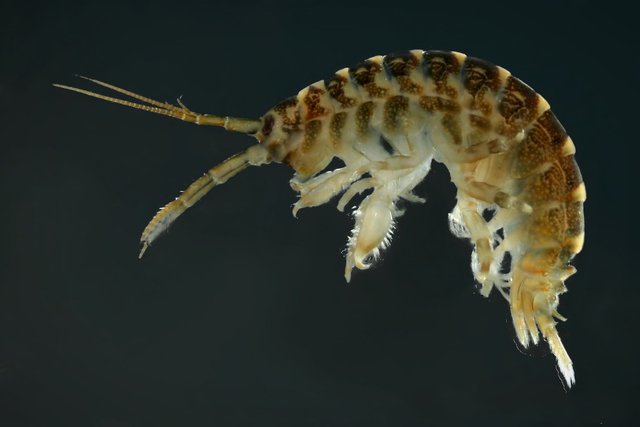Killer Shrimp Psychs Out an Ecosystem

When attempting to examine the widespread ecological effects of invasive species, scientists will typically focus on the damage caused by food source competition and active predation of native-born species. A team of researcher decided to take a different experimental approach. The team instead decided that they would test for the "non-consumptive effects" of a predator, something they called NCEs for short.
According to Dr. Calum MacNeil, who helped conduct the research, "This study demonstrates an unappreciated and indirect impact of a biological invasion by a voracious predator. It shows that the mere presence of an invader can influence resident prey behaviour, in this case the feeding efficiency of naïve residents."
The scientists introduced a caged Killer shrimp, Dikerogammarus villosus, to native Gammarus shrimp that were allowed to roam safely in the tank. The Killer shrimp is a highly invasive, predatory shrimp that has been replacing native European shrimp, such as species of the genus Gammarus, for some decades. The idea was to test how pronounced, if any, the effects on the shrimps' behavior would be and subsequently, the effect on their environment as they continued to show decreased productivity as the shrimp continued to avoid their caged predator.
Read more: http://rsci.nl/26o
Image: Michal Grabowski, University of Lodz